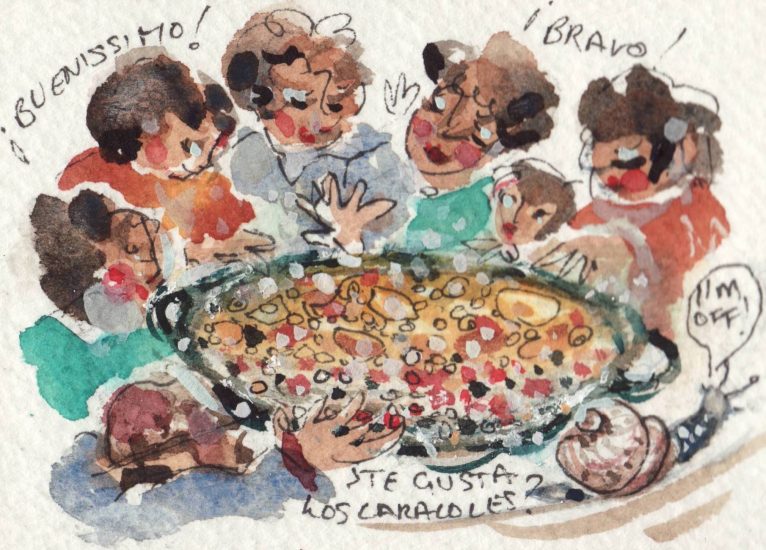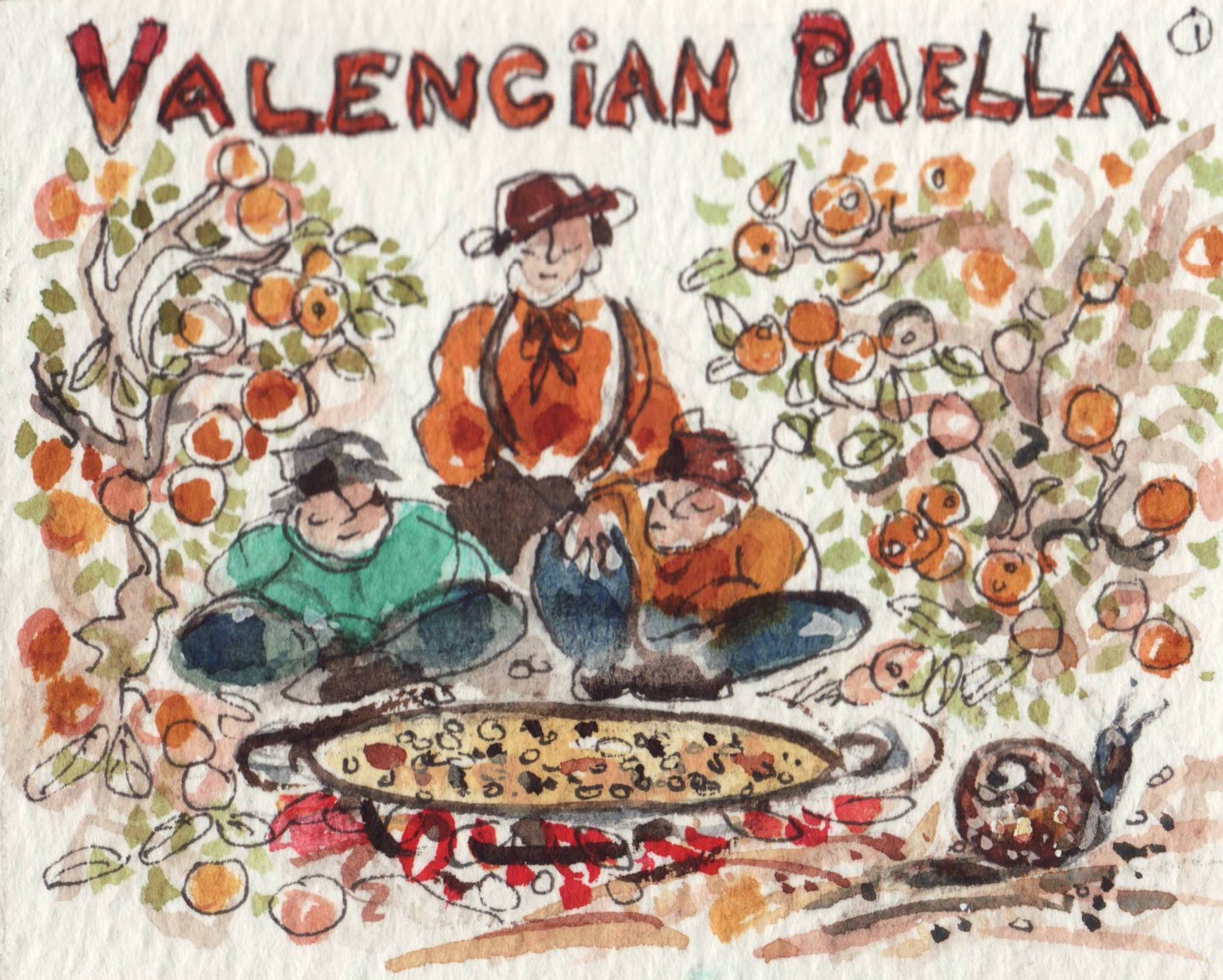
We begin the New Year with a handful of literary musings relevant to this year’s theme, Portable Food: Food Away From the Table.
The first of these is an edited extract from a privately-printed pamphlet by Lorenzo Millo Casas of the Spanish Gastronomic Academy dated Christmas 1987 (translated and edited with the author’s permission).
Elaboration on why the paella is never served at official diplomatic banquets, offered in the light of the Valencian prejudice against serving any rice dish after Vespers.
“So it is, and so it remains, that you will never see a native Valencian ordering a dish of rice in a restaurant after Vespers, except should he be entertaining foreigners, or wish to draw extravagant attention to his own eccentricity. Then what do Valencians have for dinner? They have ‘el bullit’: a delicate vegetable stew, composed, perhaps, of new potatoes and baby onions, perhaps with chard or young green beans, and a seasoning of good olive oil. A dish which, although neglected by public restaurants, is nonetheless fit for the table of a royal prince (vegetarian).
“Why then, it must be asked, is the paella, most famous of all the gastronomic delights of Valencia, never served at diplomatic functions? First, one must remember the dish’s essentially rural origins. Paella, as all the world knows, is no more than the Catalan or Valencian name for a frying pan. The “paellera” could only have been the lady who valiantly stirred the dish rather than the metal container in which the dish was prepared. The ingredients werewhatever came to her hand – bacalao with a grain, assorted beans and vegetables, various meats, poultry and rabbits, game, or, from the marshes of the Albufera, mallard and the silvery eel. It was many years before it occurred to the resourceful citizen-restaurateurs of Valencia to add seafood to the mix.
“Second, the paella is essentially an open-air festive dish, and, as such, falls within the masculine preserve. (It must be born in mind that in Valencia, as in many other places, there are dishes which only women cook; others which are men’s business, to which women only occasionally turn their hand.) The paella is a pastoral dish, born under a shady tree. It is a man who must prepare it, a recognised “paellero” of good repute. It must be eaten out of the pan in which it is cooked, with the participants seated in a circle around it, each armed with his own wooden spoon.
“This is the only way to eat a paella. The housewife, limited by the enclosed space of her dwelling, does not cook a paella – few kitchens can accommodate one. She prepares instead a paelleta, a small paella, composed of ingredients of minor gastronomic merit. Thus the paella is a dish which may be as extravagant or substantial as desired, but which remains of its nature quintessentially rustic.
“Thirdly, there is no doubt that the enjoyment of any dish, or indeed any beverage, inspires a particular train of thought, which in turn leads to conversation of a particular kind. In the case of a rural paella, taken in the open air, talk naturally revolves around rural matters: the vicissitudes of the year’s weather; the price of seed-corn; recent market prices for agricultural products. There may be some diversion allowed into the subject of bullfighting or discussion of the latest news on the Valencian game of pelota – all of which leads to unfavourable comparisons of each sport’scontemporary participants with those of yesteryear.
“In addition, the Valencian is very much given to sarcasm, is the master of the sharp verbal attack, and it is well known that the consumption of a paella, with the partakers seated in a circle, wooden spoon in hand, affords the ideal situation in which to launch such forays. Things may be said, remarks made, which under other circumstances would cause grave offence. But when made among the participants in a rural paella, these remarks are taken in good part.
“In short, here we have a dish, the paella, which through diurnal habit, rural character and its provocation of verbal assault, is not in the least suited to a gathering of diplomats.”

